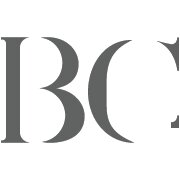Best Banking & Finance Lawyers in Santo Domingo
Share your needs with us, get contacted by law firms.
Free. Takes 2 min.
List of the best lawyers in Santo Domingo, Dominican Republic
About Banking & Finance Law in Santo Domingo, Dominican Republic
The Dominican Republic, particularly Santo Domingo, serves as a vibrant hub for banking and finance within the Caribbean. This sector is underpinned by a complex set of laws and regulations designed to ensure efficiency, security, and integrity in financial transactions. Banking and Finance Law in the country governs a wide array of financial activities, including lending, securities, insurance, investments, and compliance with international standards. The sector has been significantly invigorated by foreign investments and the presence of international financial institutions which operate in accordance with both local legislation and their respective countries' regulations.
Why You May Need a Lawyer
Legal expertise in Banking and Finance is crucial for both individuals and businesses for several reasons. You may need a lawyer if you are navigating complex financial transactions, such as securing a mortgage, establishing a loan agreement, or managing investment portfolios. Legal assistance is also needed for disputes with financial institutions, understanding compliance requirements for financial operations, or if you are a company seeking to enter the Dominican market. Lawyers can also help individuals and corporations with issues related to banking fraud, insolvency, or bankruptcy proceedings. Their expertise ensures that all financial dealings are conducted in compliance with Dominican laws and help protect the financial interests of their clients.
Local Laws Overview
The legal framework governing Banking and Finance in Santo Domingo includes several key pieces of legislation. The Monetary and Financial Law (Law No. 183-02) provides the foundational policy, ensuring the regulation and supervision of financial and economic institutions. The Superintendency of Banks is the regulatory authority overseeing banks' operations, focusing on ensuring stability and integrity within the financial system. Furthermore, Law No. 172-13 on the Protection of Personal Data dictates how financial institutions handle clients' personal information. Understanding these legal requirements is essential for both financial institutions and their clients to operate legally and efficiently within the Dominican market.
Frequently Asked Questions
What is the role of the Superintendency of Banks in the Dominican Republic?
The Superintendency of Banks supervises and regulates financial institutions, ensuring their adherence to legal requirements to maintain the system's integrity and stability.
Are there restrictions on foreign banks operating in Santo Domingo?
Foreign banks can operate in Santo Domingo but must adhere to local banking regulations and secure the necessary licenses from regulatory institutions.
How does the Monetary and Financial Law affect individuals?
This law encompasses rules and regulations that protect individual rights in banking transactions and ensures the transparency and security of financial services offered to consumers.
Can foreigners open bank accounts in Santo Domingo?
Yes, foreigners can open bank accounts in Santo Domingo; however, they must comply with KYC procedures and present the necessary documentation such as identification and proof of address.
What should I do if I suspect banking fraud?
You should immediately report suspected fraud to your bank and consult with a legal professional specializing in financial law for proper guidance and resolution.
How can I ensure compliance with financial regulations for my business?
Consulting with a knowledgeable Banking & Finance lawyer can help create a compliance plan tailored to your business operations within the local legal framework.
What are the penalties for non-compliance with banking regulations?
Penalties vary depending on the nature and severity of the violation but may include fines, sanctions, or loss of operating licenses for financial institutions.
Is legal recourse available in case of disputes with banks?
Yes, there are legal avenues for addressing disputes; engaging a lawyer with expertise in financial law can assist you through negotiation or litigation as necessary.
What protection exists for personal data in banking?
The Protection of Personal Data Law regulates how personal information is managed and requires that banks handle data with confidentiality and consent from customers.
Can digital financial services be legally offered in Santo Domingo?
Yes, digital and electronic financial services are legal and widely available. They must comply with existing local regulations pertaining to security and consumer protection.
Additional Resources
Several resources can assist individuals seeking information or legal advice in Banking & Finance:
- The Superintendency of Banks of the Dominican Republic - provides guidance on regulatory compliance.
- The Central Bank of the Dominican Republic - source for monetary policies and financial analysis.
- The Dominican Association of Banks (ABA) - offers insights into current banking practices.
- The Legal Advisory Department of the Ministry of Finance - provides legal interpretations of financial regulations.
Next Steps
If you find yourself in need of legal assistance in Banking & Finance in Santo Domingo, the following steps can help:
- Assess your specific needs by listing the issues or compliance matters you face.
- Research law firms or legal professionals specializing in Banking & Finance with proven track records.
- Contact multiple lawyers for consultations to understand their approach and pricing models.
- Prepare all necessary documentation and information related to your case before any meetings.
- Ensure you sign a clear agreement with the chosen legal professional regarding services to be rendered.
By following these steps, you can secure the right legal support for navigating the complexities of banking and finance law effectively in Santo Domingo.
Lawzana helps you find the best lawyers and law firms in Santo Domingo through a curated and pre-screened list of qualified legal professionals. Our platform offers rankings and detailed profiles of attorneys and law firms, allowing you to compare based on practice areas, including Banking & Finance, experience, and client feedback.
Each profile includes a description of the firm's areas of practice, client reviews, team members and partners, year of establishment, spoken languages, office locations, contact information, social media presence, and any published articles or resources. Most firms on our platform speak English and are experienced in both local and international legal matters.
Get a quote from top-rated law firms in Santo Domingo, Dominican Republic — quickly, securely, and without unnecessary hassle.
Disclaimer:
The information provided on this page is for general informational purposes only and does not constitute legal advice. While we strive to ensure the accuracy and relevance of the content, legal information may change over time, and interpretations of the law can vary. You should always consult with a qualified legal professional for advice specific to your situation.
We disclaim all liability for actions taken or not taken based on the content of this page. If you believe any information is incorrect or outdated, please contact us, and we will review and update it where appropriate.
Browse banking & finance law firms by service in Santo Domingo, Dominican Republic
Santo Domingo, Dominican Republic Attorneys in related practice areas.














